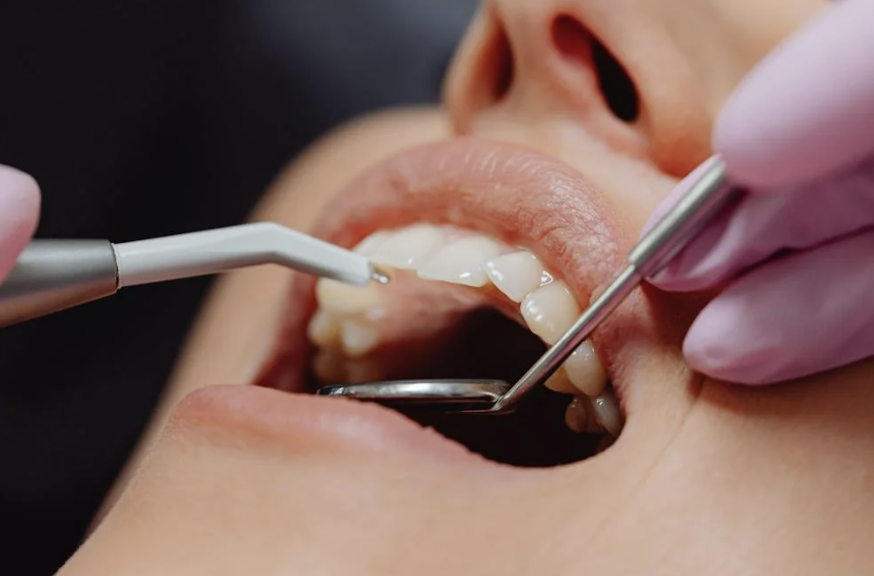5 Warning Signs of Gum Disease You are Probably Ignoring – And How to Treat Them

Gum disease, also known as periodontal disease, is a common oral health issue that affects millions of people worldwide. Yet, many individuals fail to recognize the early warning signs, leaving the condition untreated until it causes severe damage to teeth and gums. This delay can lead to tooth loss, infections, and even impact your overall health.
By understanding the early signs and seeking gum disease treatment promptly, you can protect your smile and maintain good oral health. Here are five warning signs of gum disease you should never ignore, along with effective treatment options to restore your gums to optimal health.
What to Do:
What to Do:
What to Do:
What to Do:
What to Do:
1. Bleeding Gums
Do your gums bleed when you brush or floss? While it may seem harmless, bleeding gums can be an early indicator of gum disease. Healthy gums shouldn’t bleed during regular oral care. Bleeding often occurs due to plaque buildup along the gumline, which irritates the gums and leads to inflammation.What to Do:
- Practice proper oral hygiene, including brushing twice a day with a soft-bristled toothbrush and flossing daily.
- Schedule a dental cleaning to remove plaque and tartar buildup.
- If the bleeding persists, consult a dentist for periodontal disease treatment to address the underlying issue.
2. Swollen or Puffy Gums
Swelling is another common sign of gum disease. Puffy gums are often red and tender to the touch, making eating and brushing uncomfortable. This symptom is a result of inflammation caused by bacteria in the mouth. Left untreated, swollen gums can progress to more severe stages of periodontal disease.What to Do:
- Use a gentle saltwater rinse to reduce swelling temporarily.
- Seek professional swollen gums treatment to remove bacteria and prevent further damage.
- A dentist may recommend scaling and root planing, a deep cleaning procedure that eliminates bacteria from beneath the gumline.
Suggested Read: Transform Your Smile with Dental Veneers
3. Persistent Bad Breath
Chronic bad breath, or halitosis, can be more than just embarrassing—it might be a sign of gum disease. When bacteria accumulate in the mouth, they produce foul-smelling toxins that lead to persistent bad breath. If mouthwash and mints aren’t helping, it’s time to see a dentist.What to Do:
- Maintain good oral hygiene, including tongue cleaning.
- Drink plenty of water to keep your mouth hydrated and wash away food particles.
- Consult a dental professional for a thorough examination and gum disease treatment if the bad breath doesn’t improve.
4. Gum Recession
Receding gums, where the gums pull away from the teeth, expose the tooth roots and create pockets where bacteria can thrive. Gum recession not only affects the appearance of your smile but also increases sensitivity to hot or cold foods.What to Do:
- Use a desensitizing toothpaste to alleviate discomfort from sensitivity.
- Visit your dentist for an evaluation. In some cases, surgical procedures like gum grafting may be necessary to repair the damage.
- Early intervention with periodontal disease treatment can stop gum recession in its tracks.
5. Loose or Shifting Teeth
When gum disease progresses, it can weaken the supporting structures around your teeth. This may cause your teeth to feel loose or shift out of place. If untreated, this can lead to tooth loss.What to Do:
- Avoid ignoring loose teeth and contact your dentist immediately.
- Treatments like scaling, root planing, or surgery can help stabilize your teeth.
- Replacing lost teeth with dental implants or other restorations may also be discussed if the condition has advanced.
How to Treat Gum Disease
The good news is that gum disease is treatable, especially when caught early. Here are some of the most effective treatment options:- Professional Cleaning: Regular dental cleanings remove plaque and tartar, preventing gum disease from developing. If you’re already experiencing symptoms, a deep cleaning (scaling and root planing) can help eliminate bacteria below the gumline.
- Medications: In some cases, antibiotics or antimicrobial mouthwashes may be prescribed to reduce infection and inflammation.
- Surgical Procedures: For advanced gum disease, procedures like flap surgery or bone grafting may be required to restore damaged gum and bone tissue.
- Ongoing Maintenance: Gum disease requires lifelong care. Regular check-ups, cleanings, and a dedicated oral hygiene routine are essential to prevent recurrence.
Prevention is Better Than Cure
Preventing gum disease is far easier (and less expensive) than treating it. Here are some tips to keep your gums healthy:- Brush your teeth twice daily with fluoride toothpaste.
- Floss regularly to remove plaque between teeth.
- Eat a balanced diet rich in vitamins and minerals.
- Avoid smoking, which increases the risk of gum disease.
- Schedule routine dental visits to catch any issues early.

